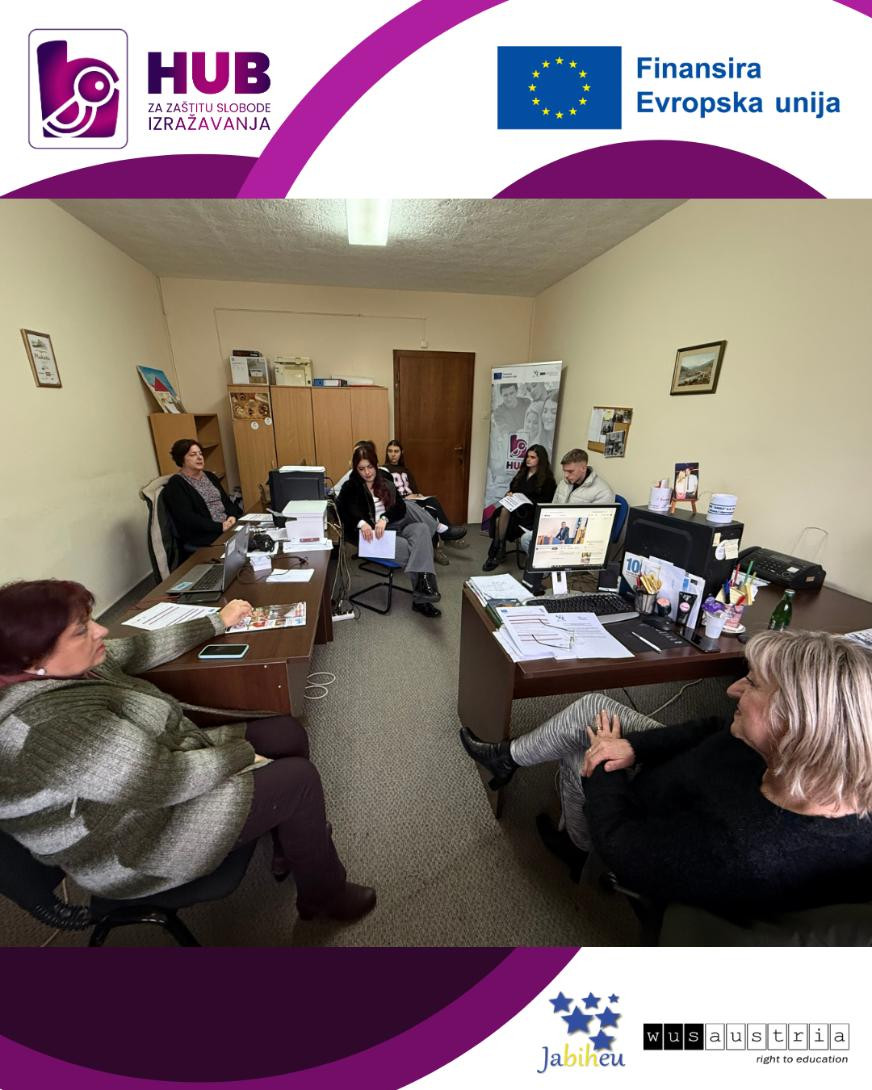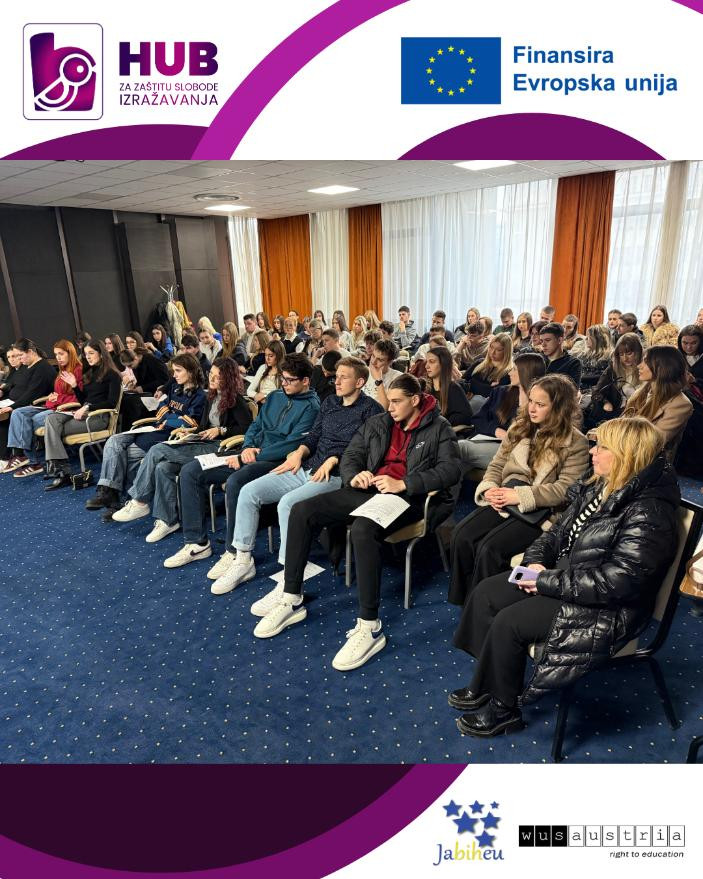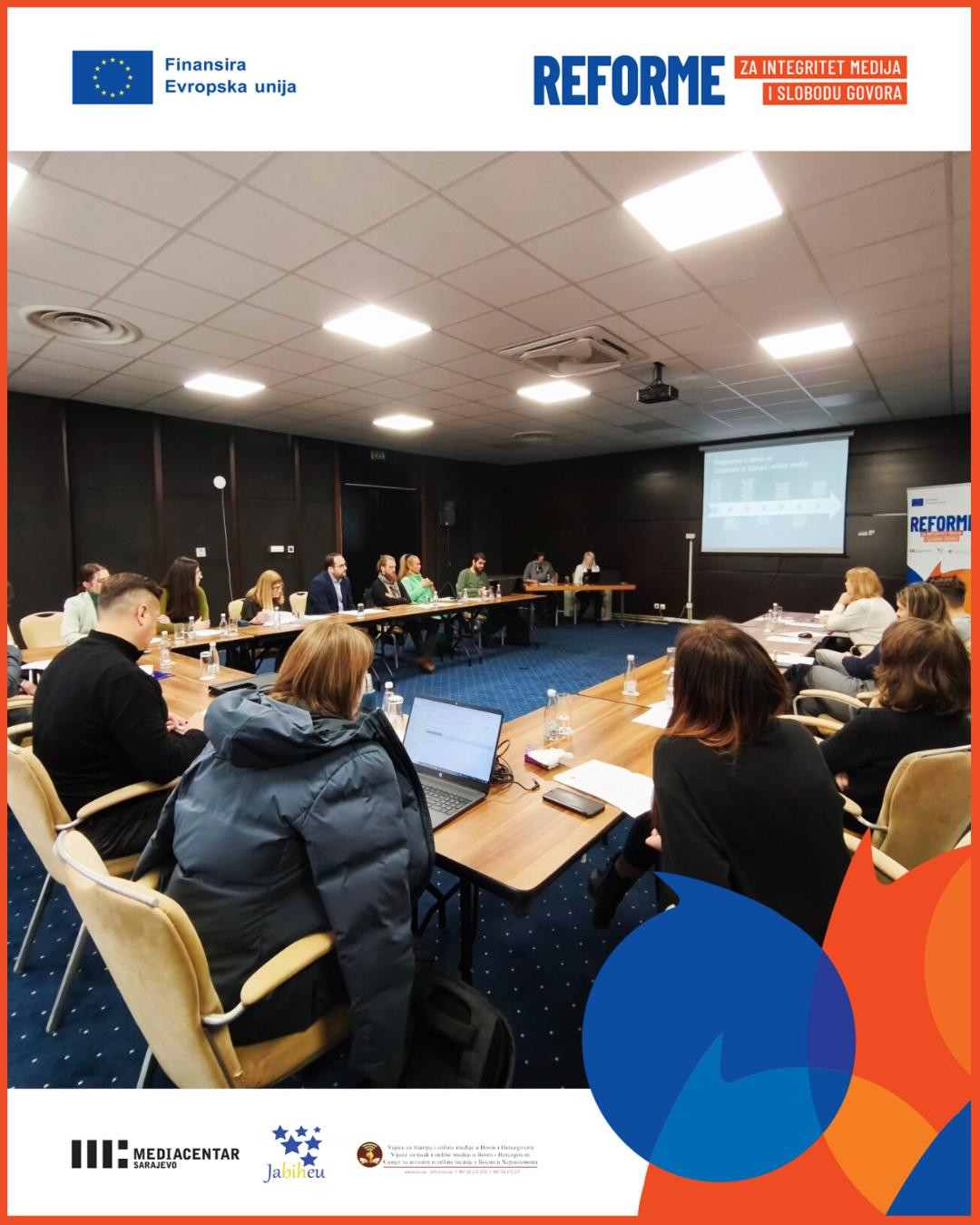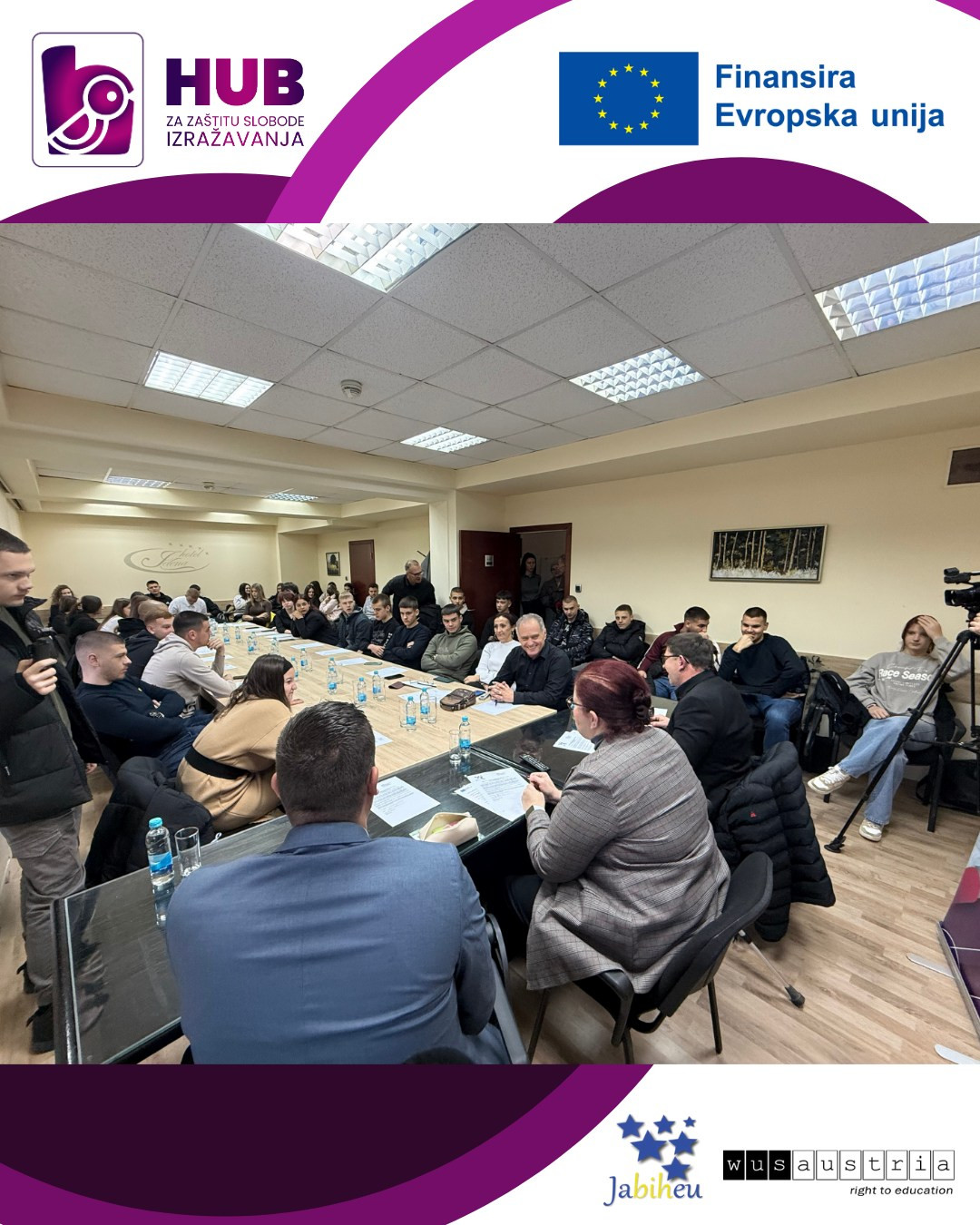
Prilikom kreiranja web stranice odlučili smo se za malo duže naslove
The Mediacentar Foundation and the NGO JaBiHEU have published a new manual for journalists with instructions and practical advice on how to identify and report online violence. Online violence is becoming a growing threat to media freedom.
What is characteristic for online violence is anonymity (hidden identity by nickname / pseudonym), accessibility (access to the victim via the Internet at any time from anywhere), disinhibition (lack of restraint and self-control of behavior that probably would not happen in the offline, real environment ). The available data indicate that online attacks on journalists are increasingly common in Bosnia and Herzegovina, but they do not appear to be taken too seriously. Threats, insults or degrading, openly encouraged hatred, and calls for lynching have been noted. Only a few attacks have been reported, the number of those that results in police investigation is even fewer, and the number of those that come to the prosecutor's offices and courts is almost negligible. In addition, in BiH, the status of online media is not legally regulated;
Anonymity is almost always guaranteed; the existing legal provisions on attacks on journalists must be "translated" into the online space that has different rules of operation and is still considered to be harmless, and therefore less relevant in the processing. Due to this, the manual "Mechanisms of Protection against Online Violence", authored by Lejla Gacanica and Marija Arnautovic, has emerged as a guide through existing legal regulations that can help journalists who are facing any form of online violence.
The manual was developed as part of the Go Digital Against Harassment project implemented by JaBIHEU and the Mediacentar Foundation, designed to identify the types of online attacks and contains instructions for journalists on how to protect and/or exercise their rights. The manual consists of four chapters - an introductory, general part that defines bh. legal framework on online attacks on journalists; description of individual online attacks; tips on how to act and what can be done to protect themselves; terms.
The guide lists the most common online attacks on journalists in BiH: defamation; pressures; threats; hate speech; discrimination; other forms of attack. Online attacks on journalists can be processed through several different laws, court and extrajudicial procedures that address attacks in general (criminal proceedings, misdemeanor procedure, litigation, specific procedures in case of discrimination, complaints to professional associations of journalists, free legal aid).
In Chapter 2, that gives a description of certain types of online attacks, protection methods are listed, and in Chapter 3, practical ways of protecting contacts and forms are elaborated in detail. In the annex there are forms of complaints, complaints, etc. One of the first steps in the fight against online violence is raising awareness of this problem. We believe that the manual will encourage journalists to report online attacks, thereby contributing to raising awareness and preventing online violence.
 BS
BS
 EN
EN




